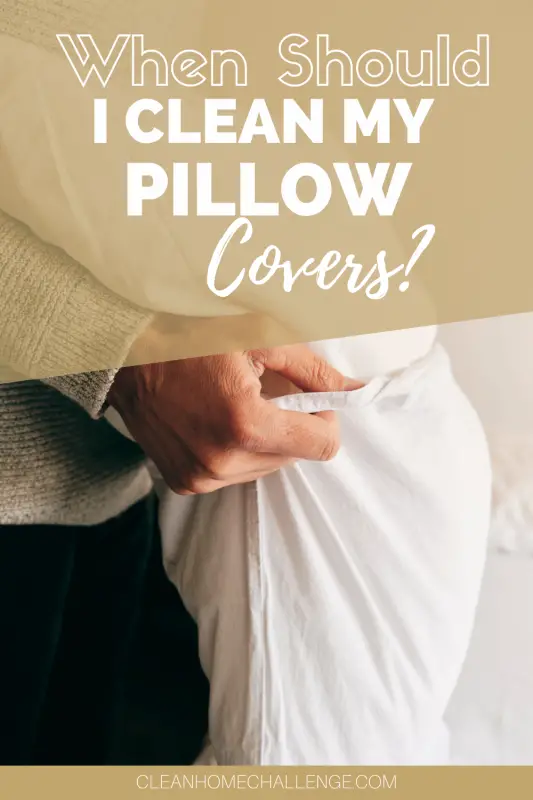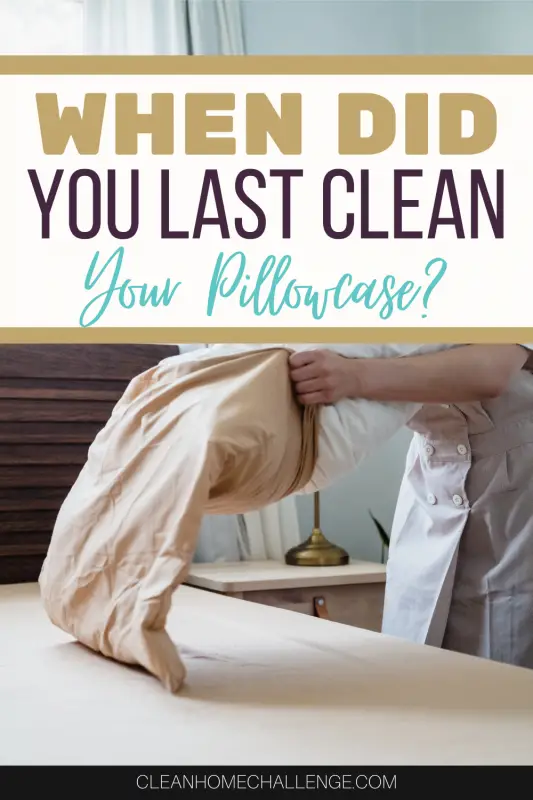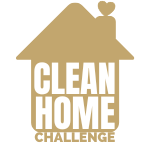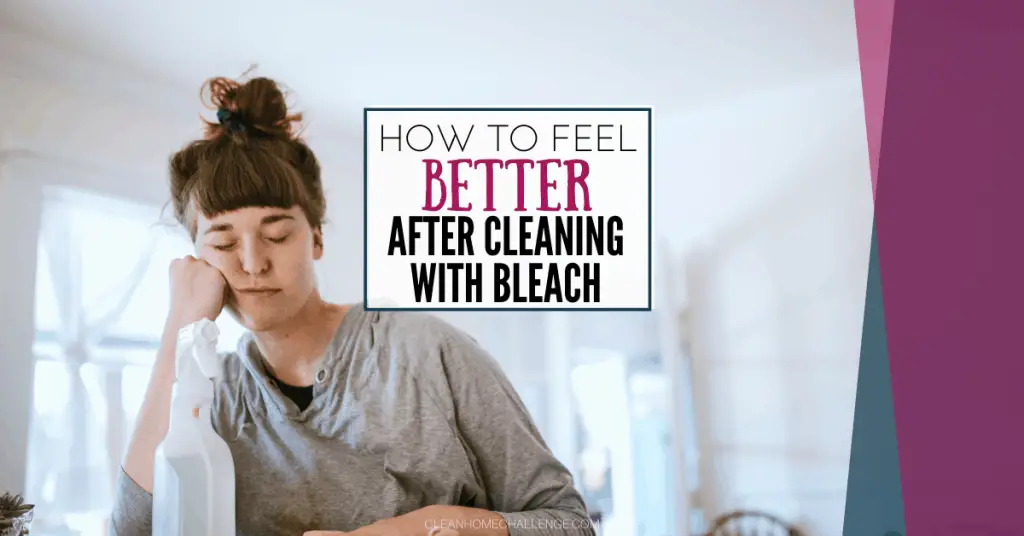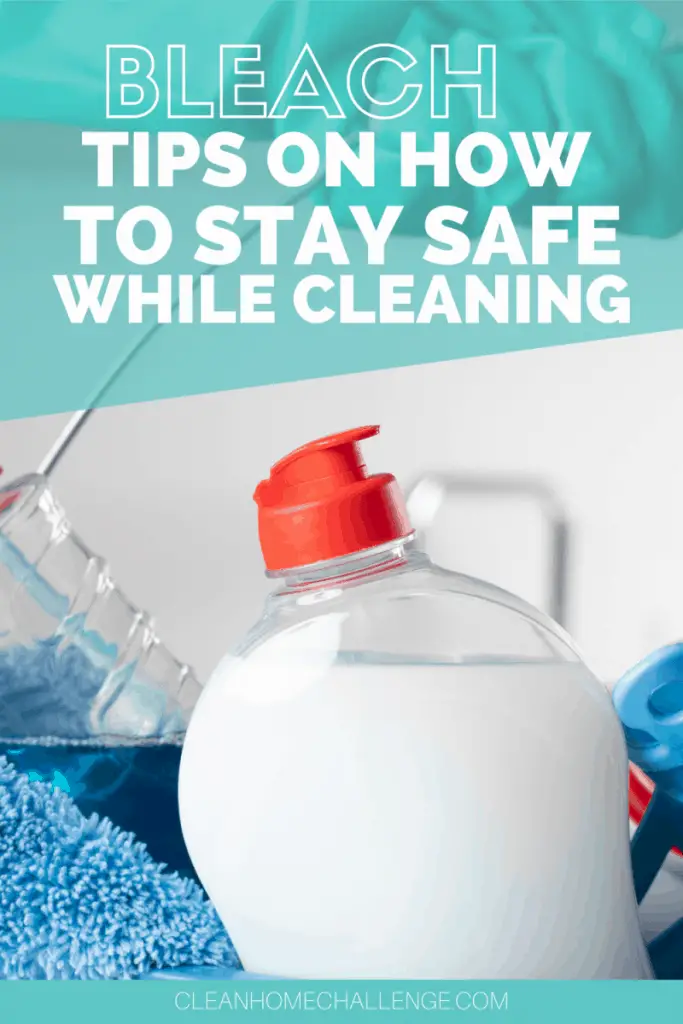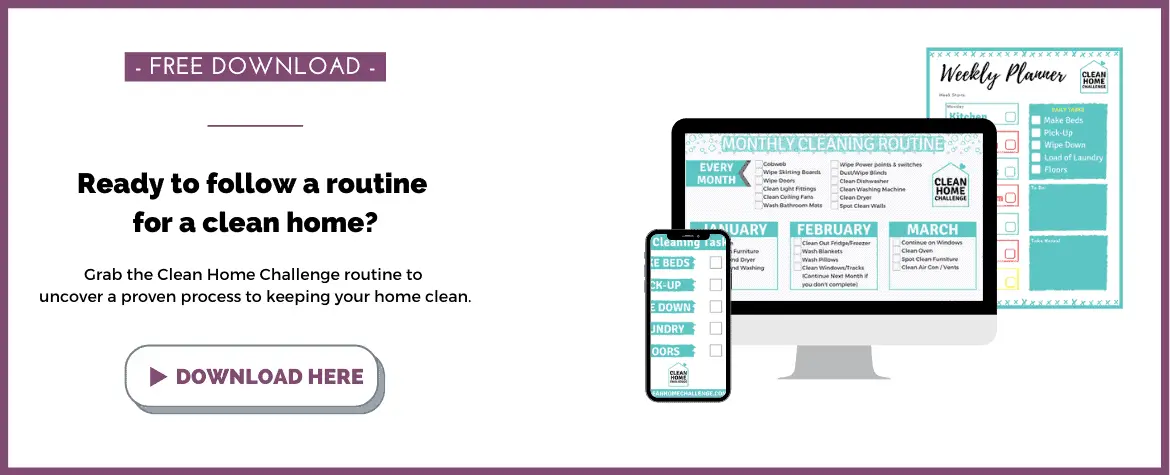THIS POST MAY CONTAIN AFFILIATE LINKS. PLEASE READ MY DISCLOSURE FOR MORE INFO.
It can be quite a bummer to be stuck on cleaning chores for hours and having to breathe in the foul stench of bleach. Those of us who do our household work or have cleaning jobs certainly aren’t a big fan of it. Cleaning with bleach can certainly make us sick, hence if you’re here to learn how to feel better after cleaning with bleach, I suggest you keep reading further.
The key solutions to this problem of cleaning with bleach include; keeping the place well ventilated, wearing gloves, and eye protection. If you end up feeling sick despite fulfilling the precautionary steps, then back off from cleaning and continue when you feel better. Health comes first!
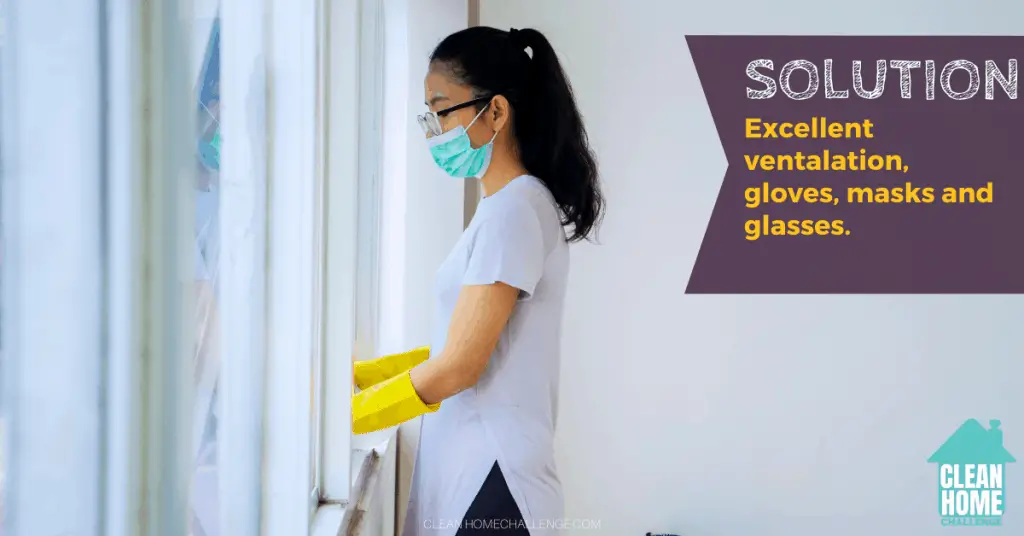
That sums up the basics of feeling better, however, that does not cover up why you do end up feeling bad in the first place. In this article I’ll be breaking down how bleach poisoning can happen, the dos and don’ts, and much more. Hence, if you’re willing to learn more about this, I advise that you read this article till the end!
Why You Should Be Cautious While Cleaning with Bleach?
You should always prioritize your safety when it comes to using bleach. Because cleaning can wait but those hospital bills won’t if you end up hurting yourself!
Bleach can come in different forms, but almost all sorts of bleach have chlorine embedded in their chemical compound’s fumes and solution. This chemical is the primary culprit of bleach poisoning as its fumes can enter the body and wreak havoc.
Several variants of chlorine can form when household cleaning bleach products come in contact with acids and other chemicals that can trigger the release of lethal airborne particles. Internal hemorrhage, flooding of lungs, damage of airways, COPD, and even death can take place if bleach poisoning gets too far.
This is more likely when you are cleaning toilets, windows, sinks, etc. Most cleaning solutions contain acids or ammonia which can react with bleach products to form deadly vapors. Even low doses of such gases can make you wheeze, cough, cause shortness of breath even during short-term exposure.
In easy words, cleaning with bleach can always go wrong and end up making you fall ill. Thus, you should always implement precautionary steps.

How to Feel Better after Cleaning with Bleach?
Let’s hop straight into how you can avoid feeling under the weather when resorting to bleach for cleaning purposes. It is more than common to let the strong stench and aura of bleach get to you and possibly ruin your day or perhaps your week.
Thus, without further ado, I’ll simply jot down a bunch of non-puzzling solutions you can rely on to feel a bit more ecstatic after doing your cleaning jobs.
Get Some Air
If you have failed to ventilate your room or workplace sufficiently enough before cleaning, then get some clean and fresh air into your system. The stench of bleach when inhaled can cause you to wheeze and cough profusely. If your lung tissues are inflamed by bleach particles, short-term respiratory problems may show up.
If left unchecked, they can get more severe and cause shortness of breath, tightness in the chest, sore throats, and other respiratory inconveniences. Hence, it’s best to stop working yourself any further after the first sign of bleach inhalation. You should just go outside, take a break and avoid working any time soon till you start feeling better again.
Wearing Protective Tools
Whether you’re cleaning clothes, the toilet, or the floor, you might always end up mixing your bleach with other cleaning chemicals that may have acid or ammonia in them. If you ever notice a very foul-smelling stench or notice an unusual smell forming, wear a mask.
Safety Glasses are important to make sure the fumes don’t enter your eyes. They can penetrate through the protective mucus lining of your eyes and cause wetness or dryness to form. The longer you are exposed to these unusual fumes the worse the consequences will be.
Your skin is no stranger to dangers as well. Skin rashes, hives, and breakouts can happen in several of your delicate skin areas as your body will fight against getting rid of the fume toxins. Hence, your face and hands need to be covered with a mask and gloves.
Do Not Vomit Forcefully
Inhaling bleach can at times end up making you feel nauseous. But only if you inhale a significant amount of them.
You may feel like vomiting as it is one of your body’s natural responses towards the intoxication of bad substances. However, it’s for the best that you don’t voluntarily induce vomiting unless it comes naturally.
Use An Inhaler If You Have Asthma
If you’re an asthma patient, then the dangers of chlorine poisoning become a lot more significant for you. Thus, always keep your inhaler beside you and use it at the first sign of any breathing discomfort.
Wash Your Hands And Change Clothes
This is necessary to remove any residue of liquid bleach or fume stench attached to them. You should perhaps take a shower and use soap and water to clean your hands up.
All your clothes are to go straight to the washing machine and to be decontaminated. Do not eat or touch your mouth, ears, eyes ever after using bleach.
Consult A Doctor
Usually, if the exposure is minimal and no reactions take place, the sickly feeling only lasts for a day at max. Nevertheless, long-term exposure and inhaling or gulping down bleach contents can be very fatal and cause severe health issues.
In special cases like this, always call for emergency help and consult a doctor immediately. The longer you avoid the worse it’ll get.

Mistakes You Should Avoid When Cleaning with Bleach
Here are a few do-not-do-lists that may help to keep you in check while cleaning with bleach. These mistakes are to be avoided and should always be compensated for after.
Not Diluting Your Bleach
There’s a 1:10 ratio of Bleach and Water. A single cup of Bleach is to be dissolved in a gallon of water to be safe.
Moreover, diluting your Bleach significantly makes them a lot less lethal. So, in case you spill some onto yourself, you won’t be facing any chemical burns.
Not ventilating Your Room Properly
The fewer opportunities you create for the fumes to exit out of the room and stay, the more opportunities you create for yourself to be poisoned.
A well-ventilated room allows fresh air to enter and replace the foul fumes. It also opens a welcoming door for all the foul scented fumes to escape, creating a safe space for you to breathe and live in.
Cleaning With Bleach Too Frequently
This is a dire mistake that many of us make. Although I understand your obsession with keeping your toilets clean 24/7. I still won’t recommend regularly using bleach as a means of getting it clean.
Sometimes acidic cleaning solutions and water and soap alone will suffice. You may end up with heavy medical bills if you use bleach for cleaning purposes too frequently.
Mixing Bleach with Other Substances
The only safe compound you can use with Bleach is only water as it will dilute its strength. However, mixing Bleach with vinegar, toilet cleaners, rubbing alcohol and ammonia is an absolute no-no.
If you make the mistake of mixing Bleach with these chemicals, you will endanger yourself and others around you. A reaction may occur that will release toxic chlorate fumes into the room.
Final Words
Now, you know how to feel better after cleaning with bleach. Although it is quite admirable to take the cleaning job upon yourself, always put your safety first no matter what. Make sure you avoid the common mistakes people make when using bleach.
I wish you all the best and thanks for reading this article!



